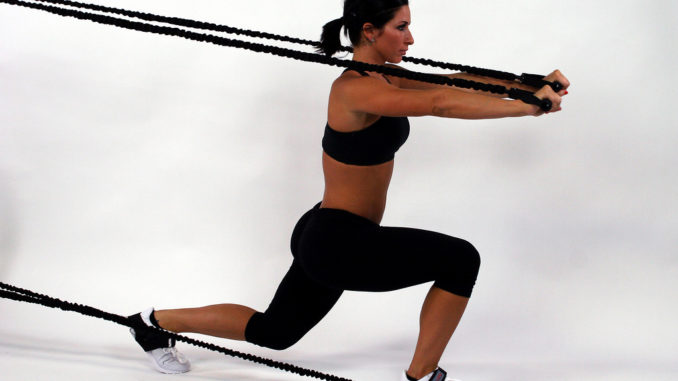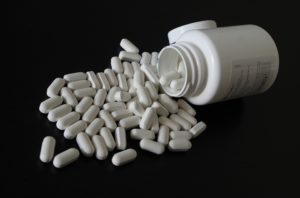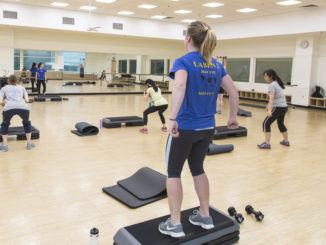
Working out is not enough for building a perfect body. If you want results, you have to do more than just lifting 10-pound dumbbells and hitting the treadmill. The volume and intensity of your workouts make all the difference. A challenging workout can boost your metabolism, ignite muscle growth, and accelerate fat loss. Over time, it will enhance your strength and endurance, turning you into a better athlete.
The downside of intense training is that it puts stress on your body. The harder your workout, the more time you need to recover. Sore muscles, back pain, aches, fatigue, and low energy are common problems among those who hit the weights hard. Fortunately, there are ways to speed recovery and prevent overtraining.
How Exercise Affects Your Body
When you start working out, your heart rate increases. Strength training causes microscopic tears in muscle tissue and puts stress on your joints. Cardiovascular exercise, especially HIIT, depletes glycogen stores at a fast rate. These factors combined lead to delayed onset muscle soreness and fatigue.
Your muscles grow and recover while you sleep. At night, your body repairs damaged tissues and heals itself. Along with diet and exercise, sleep plays a key role in muscle growth and overall performance. Without adequate rest, you won’t be able to recover properly from training. This may cause muscle loss, sluggish metabolism, loss of strength, and decreased energy.
Strenuous exercise can also lead to overtraining. This condition occurs when you perform more training than your body can handle.
The Most Common Signs of Overtraining Include:
- Decreased Appetite
- Decreased Endurance and Strength
- Difficulty Concentrating
- Elevated Resting Heart Rate
- Fatigue and Tiredness
- Fluid Retention
- Greater Injury Risk
- Hyperexcitability
- Intense Muscle Soreness
- Irritability
- Joint Pain
- Lack of Motivation
- Mood Swings
- Poor Overall Performance
- Recurring Infections
- Reduced Immune Function
- Restlessness
- Sleep Problems
- Weight Loss And Fitness Plateaus
Training too much or for too long is just as bad as no exercise at all. Spending over two hours in the gym doesn’t make you a better athlete. It can actually affect your gains and take a toll on your health. If you’re constantly straggling with fatigue and muscle soreness, you might be overtraining. In the long run, you’ll stop making gains, get fatter, and have trouble sleeping.
Intense exercise also increases production of the stress hormone cortisol, cortisol lowers your growth hormone and testosterone levels. This leads to weight gain, slow recovery, and mood swings. Overtraining will leave you sluggish, moody, and unable to focus on your daily tasks. Additionally, your muscle and liver glycogen levels will run low, affecting your energy and stamina.
Simple Ways to Maximize Post-Workout Recovery
Good nutrition, rest, and supplementation play a key role in recovery. To maximize your gains and recover from training it’s essential to get plenty of sleep and eat well.
Also, it’s important to limit stress and try relaxation techniques, such as deep tissue massage and foam rolling. The harder you train, the more you should focus on recovery.
1: Eat a Recovery Diet
First of all, make sure your diet is in check. Maintain a high intake of protein and complex carbohydrates. Your body needs carbs to replenish its glycogen stores and have the energy needed for intense training. Protein supports muscle repair and aids in the formation of new cells and tissues. You also need calcium, iron, zinc, and other micronutrients to maintain bone strength.
Most people fail to meet their daily nutrient requirements. Some athletes need over 5,000 calories a day to function at their peak. For instance, powerlifters consume as many as 10,000 calories daily to get the strength and energy required for heavy lifting. Under these circumstances, it can be hard to get enough calories and macros.
2: Consider Taking Recovery Supplements
This is where supplements come in handy. Glutamine, BCAAs, whey protein, creatine, beta-alanine, citrulline malate, and other nutrients speed up post workout recovery, so include them in your diet.
Sports supplements are particularly beneficial for pro athletes as well as for those preparing for competitions. They can also help you recover faster from training during cutting cycles when you’re in a caloric deficit.
For example, protein powder helps preserve muscle and keeps your metabolism up. HMB accelerates fat loss and promotes muscle growth. BCAAs boost your energy levels, support muscle repair, and enhance athletic performance.
3: Get Plenty of Rest
Also, make sure you get enough rest. Sleep at least eight hours per night to allow your body to recover from exercise. Use a foam roller to relieve tight muscles and break up scar tissue. Take a break from training once every three to four months.
Eventually, schedule a week-long deload to accelerate recovery and keep your body from adapting to heavy lifting. Low impact activities, such as swimming, yoga, and walking, can also aid in muscle repair and flush out metabolic waste from your system.








Be the first to comment